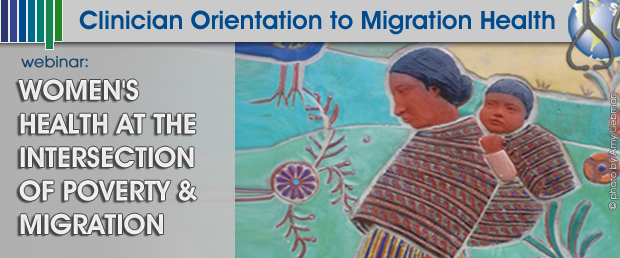Part 5 of the 6 webinar series: Essential Clinical Issues in Migration Health
DATE RECORDED: June 5, 2014
PRESENTED BY: Katherine Brieger, RD and Elizabeth Magenheimer
To receive CME* or CNE credit after viewing any of these webinars you must do the following:
|
Diabetes continues to be one of the most common and challenging health condition confronting migrants and other underserved populations. It is clear that a healthy lifestyle is critical to mitigating the impact of diabetes on individuals and the population, however effective and appropriate interventions can be difficult to design. Fairhaven Community Health Center in Connecticut and Hudson River Healthcare in New York, are two health centers that have long led the way in creating culturally appropriate lifestyle programs for migrants and other underserved patients. In this session the presenters will discuss lessons learned from the development of a variety of programs for diabetics and other patients including a community garden, nutrition classes, cooking classes, weight management and strategies to encourage exercise. The session will address the clinical core measures related to nutrition and BMI and will also discuss current research test second line drug effectiveness in Type 2 DM. Available in English
Learning Objectives:
- Describe culturally appropriate diabetes intervention strategies
- Identify strategies to address clinical core competencies related to nutrition and BMI to improve quality care.
- Receive “take home” examples of how to incorporate effective nutrition, weight loss, exercise and other health lifestyle strategies.
FURTHER READING |
Download the Spanish Toolkit Materials
National Diabetes Information Clearinghouse, http://diabetes.niddk.nih.gov/dm/pubs/preventionprogram Bright Bodies, http://brightbodies.org |
